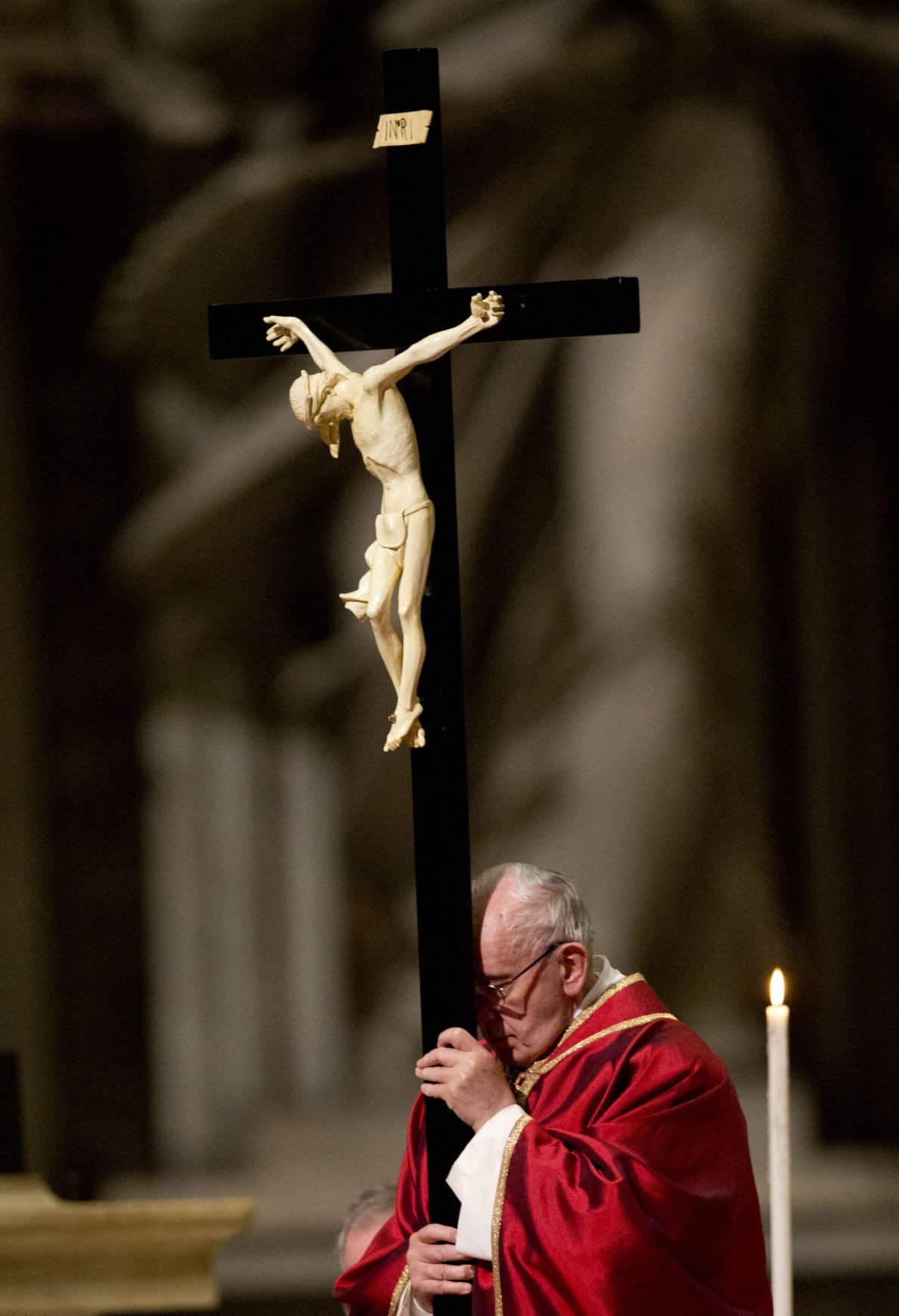Pope Francis, a beacon of faith and resilience, continues to inspire millions around the world. As the leader of the Catholic Church, his commitment to serving humanity remains unwavering despite personal challenges. His recent absence from significant religious events has drawn attention, prompting reflection on his health and the broader implications for the global Catholic community.
In the heart of Rome, the annual Good Friday procession at the Colosseum stands as a powerful symbol of Christian devotion. This year, however, Pope Francis's absence from this sacred event marked the third consecutive year he missed it due to health concerns. His decision to prioritize recovery reflects both medical advice and a deep understanding of his responsibilities to the Church and its followers.
Reflections on Absence: A Leader's Prudence
The decision by Pope Francis to miss the Good Friday Via Crucis at Rome's iconic Colosseum underscores the importance of health in fulfilling one's duties. At 88 years old, the pontiff is still recovering from a severe bout of double pneumonia that nearly claimed his life. This illness forced him to reconsider his participation in public ceremonies, even those as significant as the re-enactment of Jesus' crucifixion. By choosing not to attend, Pope Francis demonstrated prudence, prioritizing his well-being to continue leading the Church effectively.
Although physically absent, Pope Francis ensured his presence was felt through the meditations he personally wrote for the event. These reflections guided participants through the Stations of the Cross, emphasizing themes of suffering, redemption, and hope. His contributions highlight how leadership can transcend physical limitations, offering spiritual guidance even when circumstances prevent direct involvement.
This year's absence marks the third consecutive time Pope Francis has skipped the Good Friday procession, following similar decisions in previous years due to ongoing health issues. Each omission serves as a reminder of the delicate balance between duty and self-care, particularly for leaders entrusted with vast responsibilities. The Vatican's decision to follow doctors' advice reinforces the importance of preserving health to maintain long-term service to the faithful.
Health Considerations Shape Spiritual Leadership
Pope Francis's health update reveals the challenges faced by aging leaders in maintaining their roles while addressing personal wellness needs. Missing the Way of the Cross procession was described as necessary to conserve his health, reflecting a strategic approach to managing his condition. The Vatican acknowledged that cold weather and lingering effects of recent hospitalizations played critical roles in this decision, prioritizing recovery over ceremonial obligations.
The pontiff's recent release from the hospital after battling bronchitis further complicates his ability to endure outdoor events like the Good Friday procession. While such absences may disappoint some devotees, they underscore the necessity of safeguarding the leader's vitality for future engagements. This cautious stance aligns with the broader mission of ensuring continuity within the Church hierarchy.
Reports indicate that chilly conditions in Rome contributed significantly to the decision to cancel Pope Francis's attendance. Weather-related factors often pose additional risks for individuals recovering from respiratory illnesses, making indoor alternatives more suitable during convalescence. Such practical considerations demonstrate the thoughtful planning behind high-profile religious events, balancing tradition with contemporary health realities.
Continuity Amid Change: Strengthening Faith Through Example
Despite missing the procession, Pope Francis's influence extended beyond physical presence through carefully crafted meditations that resonated deeply with participants. His writings emphasized timeless messages of sacrifice and renewal, reinforcing core tenets of Christian belief. By focusing on these universal themes, the pontiff strengthened communal bonds among Catholics worldwide, proving that effective leadership transcends geographical or temporal constraints.
This year's Good Friday observance culminates in Easter celebrations, symbolizing triumph over adversity—a message particularly relevant given the pontiff's own struggles with illness. His example illustrates how perseverance and adaptability can inspire others facing similar challenges. Through deliberate choices prioritizing health, Pope Francis exemplifies responsible stewardship of leadership roles, setting a standard for future generations of religious figures.
As the global Catholic community anticipates upcoming events, Pope Francis's decision to step back temporarily reassures followers about his commitment to longevity in service. His actions remind us all that true strength lies not only in enduring hardships but also in recognizing when rest and recuperation are essential components of sustained impact. In doing so, he continues to lead by example, fostering hope and resilience across diverse congregations worldwide.

